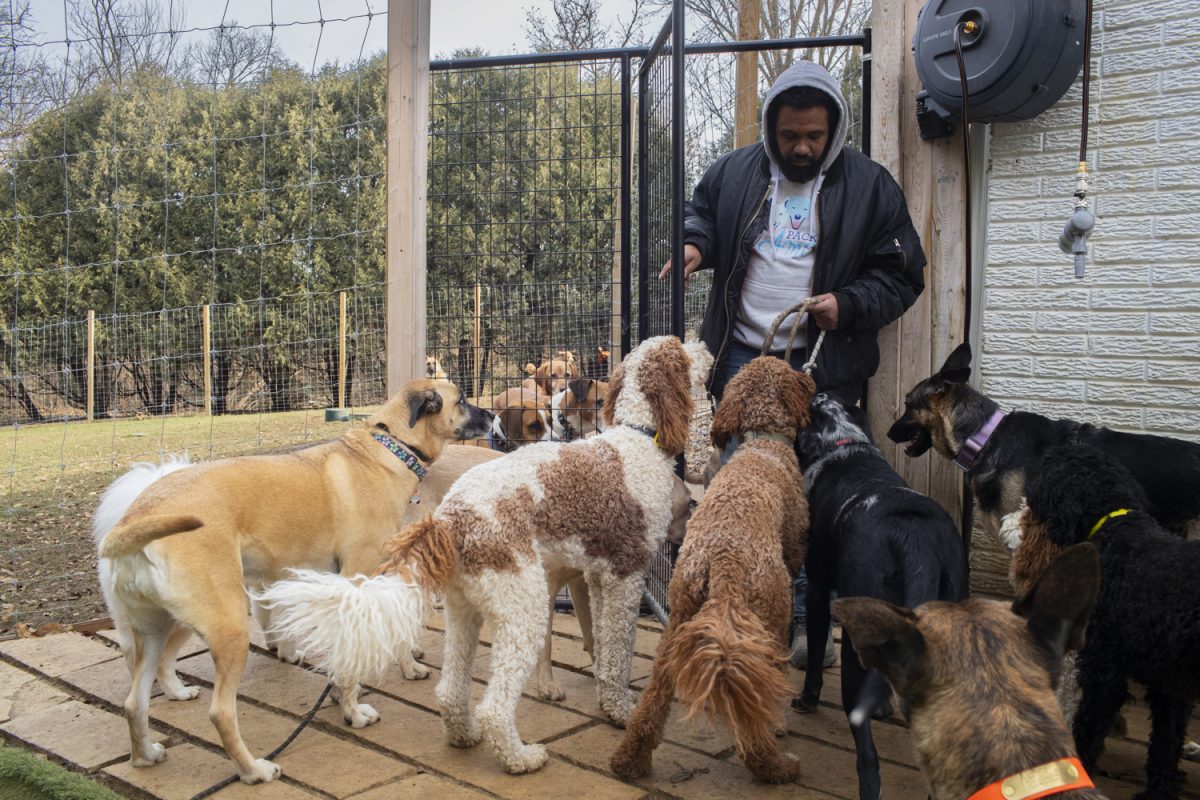Despite national concerns over an unidentified respiratory illness spreading through dogs, Iowa experts say dog owners should take precautions, but the virus is rarely fatal.
In a statement on Dec. 5, the American Veterinary Medical Association wrote that cases of the new disease were seen by veterinarians in multiple states as of early December. One case in Iowa was confirmed in September by Melissa Beyer with the South Des Moines Veterinary Center.
Local veterinarians and shelter owners compared the disease to a prolonged kennel cough, a highly contagious respiratory disease, but it does not respond to treatment. In some cases, it can become a more serious illness, such as pneumonia, which can lead to death.
The cause of the disease, how it spreads, and treatment remains unknown.
Symptoms of a typical canine respiratory infection include coughing, sneezing, red nasal discharge, red, runny eyes, eye discharge, difficulty breathing, or lethargy.
The Iowa Department of Agriculture and Land Stewardship recommends dog owners ensure their vaccinations are up to date, avoid interaction with other dogs if their dog is symptomatic, and take ill dogs to the veterinarian.
April Blong, clinical associate professor at Iowa State University’s College of Veterinary Medicine, said the veterinary community thinks the disease may be a typical bacteria-type infection.
Blong said if a dog is healthy and not immunocompromised, it’s reasonable to let them interact with other dogs.
She said research is in the early stages and a lot remains unknown, and more information will be discovered about risk factors, how the disease is spread, and prevention in the coming months.
One of the first cases in the state was confirmed by Beyer, who said she estimated that she has seen 20 to 30 cases since then. However, identifying the disease is very difficult.
“The lack of response to medicine is how we have been identifying it at this point,” she said.
Beyer said this illness takes a longer course and requires a different combination of medications to treat.
She has noticed a nationwide downturn of the disease over the last week but said if dogs are congregating over the holidays, cases may increase.
Chris Whitmore, director of the Iowa City Animal Adoption Center, has not seen any cases but said the shelter is prepared in the event of an infection.
“You hate to say that all you’re doing is hoping, but you’re preparing and hoping at the same time,” Whitmore said.









